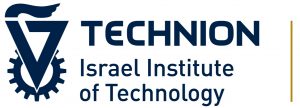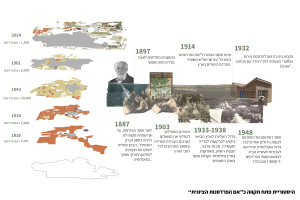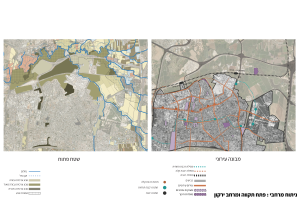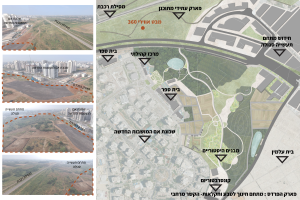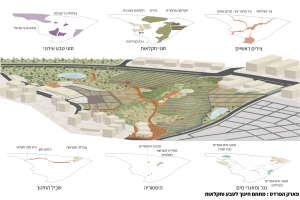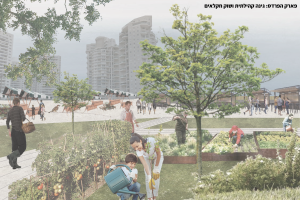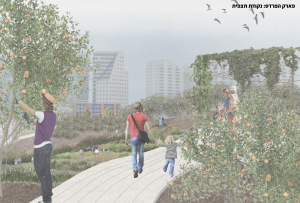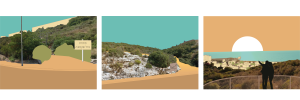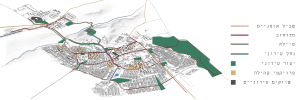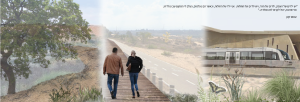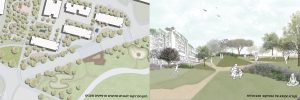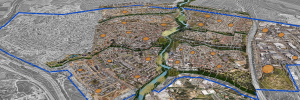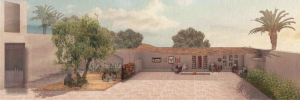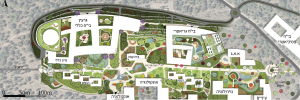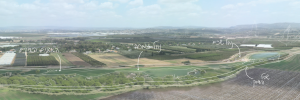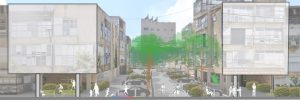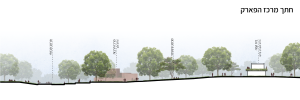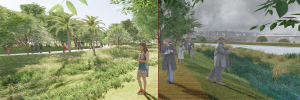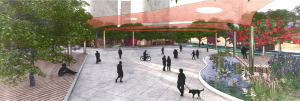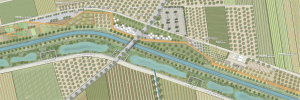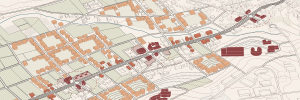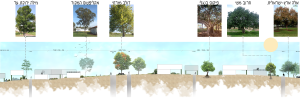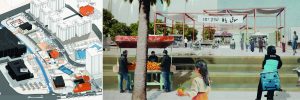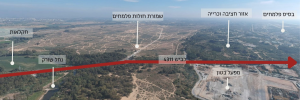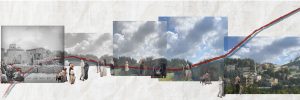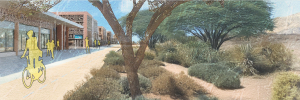You’ll Stroll Through the Orchard
The Dan metropolitan area is facing a problem of urban densification and sprawl at the expense of open and agricultural lands, leading to the accelerated loss of agricultural identity and disconnecting people from their environment. This is exacerbated during events such as pandemics and wars, making the connection to the environment an essential need.
To deal with these problems, the question arises: How do we create connections to nature and agriculture in a densely populated urban space? By 2050, Israel’s population is expected to double, which will lead to a 70% increase in food demand.
Population growth, along with urban sprawl and densification in the Dan metropolitan area, is leading us toward a food security crisis that we will need to address in our time.
The project’s goal is to attend to these two challenges: Connecting people to nature, and the food security crisis.
To do so, I will focus on Petah Tikva, which serves as an ideal case study, as it is located at the edge of the Dan metropolitan area and is surrounded by agricultural land. The city has a rich history as the first agricultural colony and “the mother of Zionist citrus farming,” but today it is cut off from access to the Yarkon area, which has a rich history and high landscape value, by major roads and railway lines. Petah Tikva’s borders with the Yarkon area present an opportunity to reconnect people with nature and with the urban agricultural heritage of the region.
The project proposes an urban framework that will serve as a space for entrepreneurial agricultural development through a high-tech complex focused on advancements in agriculture, agricultural education centers through colleges and agricultural schools, community gardens, areas for the preservation and restoration of streams and their surroundings, and an educational agricultural park. The project emphasizes the “Orchard Park,” which provides a variety of agricultural and landscape experiences, while being self-sustaining in terms of resources and economy. The park will function as an educational agricultural space and as a natural and historical heritage center that connects the city to the Yarkon area.
